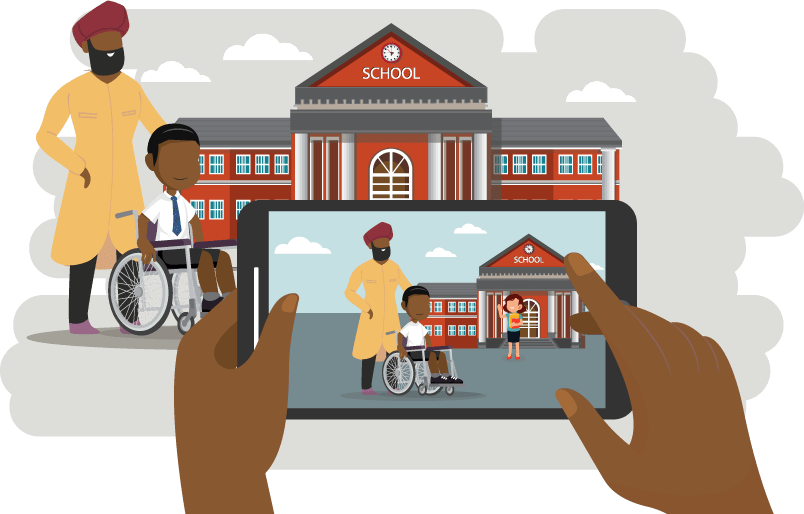Special Schools and Specialist Facilities

Introduction
Special Schools
Special schools are for children and young people with complex and significant learning needs that cannot be met in the mainstream school.
There are special school places for all school age groups. This includes primary, secondary and college. Some special schools are specialist in particular areas of educational needs and some are residential.
Specialist Facilities
Some mainstream schools have a specialist facility within them. These facilities provide extra support for children and young people with SEND (Special Educational Needs and Disabilities). For example, speech, language and communication difficulties or Autism.
This helps meet the needs of children with a higher level of SEND. The provision within the facility aims to enable the children and young people to access mainstream lessons with their peers.
Please note, an Education, Health and Care Plan (EHCP) is required to access special schools and specialist facilities.
Mainstream Schools
We are fully committed to inclusion and most children and young people with SEND will thrive in their mainstream setting. This is a school or college that provides education for all children, whether they have SEND or not.
When to Consider a Special School
Every child with SEND can expect support from all schools, not only in special schools. This is outlined in the Universally Available Provision. This may be a good place to start in deciding whether mainstream education or a special school would be more suitable for your child. You can find out more by visiting our page on SEND Support at School.
Parents and carers have a right to request a special school placement for their child if they feel it will be the most appropriate setting for them. The local authority will then consider the request and a decision will be made based on the child’s individual needs. If you believe your child would benefit from being in a specialist setting, you should consider the following steps:
- Discuss your concerns with their class teacher at their current school
- Discuss your request for a change of placement at the annual review of your child’s EHCP
- You may also request an early annual review if you and your school agree this is necessary
- The request for a change of placement/special school placement will then be considered by the Local Authority
Reasons you may decide that mainstream education is best for your child:
- You feel your child’s needs are being met at their mainstream school and they are making progress. You are happy with the level of support a mainstream school can provide your child
- Your child may wish to go to a mainstream school to be around their friends, peers and community
- There may not be a suitable special school near you. You may decide not to transport your child each day to a more distant school
- A mainstream school may excel at a particular subject and you would like your child to take advantage of this. Equally, your child might really like or excel in a particular subject and they would prefer mainstream teaching in that subject
- Your child's exact SEND needs are still being understood. Time spent in a mainstream school will help to determine the specific support required
- You may feel mainstream education is the right way to prepare your child for adult life
Reasons you may decide a special school is best for your child:
- Over time your child is finding education in a mainstream school too difficult. Despite their school’s best efforts your child is not making progress
- Those supporting your child and the school agree that the school cannot meet your child’s individual needs
Types of Special School
All special schools offer teaching to children with significant needs. There are usually differences with how they are funded and who manages them. Special schools are either:
- A maintained special school. This is a special school funded and managed by the Local Authority. In our case, East Sussex County Council
- A mainstream school with a specialist facility. This is a school open to all children that also has specialist teaching facility/building. This facility/building is for children with SEND who have an EHCP; or,
- An independent special school. These schools are self-managing and not directly funded by the Local Authority
Section 41 of The Children and Families Act 2014 distinguishes between two types of Independent special schools:
- Independent schools approved under Section 41. This is an independent special school where admissions are controlled by the Local Authority and funding comes from agreement in each child's EHCP
- Independent special schools not approved under Section 41. This is an independent special school which controls its own admissions process, where the funding can either come from agreement in EHCP, fee payment by the parents or carers, or charitable donations
All these types of special school are available in East Sussex. In the first instance the Local Authority will explore options in the schools where the Local Authority control admissions.
See the Finding a School in East Sussex section below, to find out more about special schools and specialist facilities around East Sussex.

Choosing Special Schools in EHCP Process
During the process of nominating a school, the parent or carer, and child or young person have a right to name any special school they feel is suitable.
East Sussex County Council will follow the procedure of assessing the viability of the school nominated. This is carried out using guidance given in the Children And Families Act 2014. It will include consultation with the nominated school, or the Local Authority the school resides in if out of area.
East Sussex County Council will secure a place in the nominated school unless:
- The school or institution is not suitable for the child or young person
- The attendance of the child or young person in the requested school is not compatible with the efficient education of others; or
- The efficient use of resources. For example, choosing a school at some distance from East Sussex that is not distinctly different to a school in East Sussex
These bullet-points paraphrase Section 39 of the Children and Families Act 2014.
For more detail on this, read section 39 of the Children and Families Act 2014.
Scope provide guidance and information on choosing a special school for your child on their website:
Special School Nursing
If your child is referred to a special school and has existing nursing needs, the special school nurses will be notified. Your child will receive support and an automatic review of their needs. This will help to deliver their health plan.
Finding a School in East Sussex
You can find information on applying for schools in East Sussex by visiting the main East Sussex County Council website:
Special Schools and Specialist Facilities
The East Sussex Local Offer directory is hosted on 1Space. The directory lists special schools and schools with specialist facilities in East Sussex. On the directory, you can further refine your options using the filters available. This can include filtering results down to a certain area of East Sussex, or by settings that provide for a specific need:
Mainstream Schools
The directory also lists mainstream schools throughout East Sussex. These listings include useful information such as each setting:
- Special Educational Needs Co-ordinator (SENCo) contact information
- Accessibility information
- SEN Information Report link
- SEND-relevant staff training and qualifications
On the directory, you can further refine your options using the filters available. This includes filtering results down to specific areas, age ranges and accessibility features:
Independent and Non-Maintained Special Schools and Colleges
Independent special schools are self-managed and not directly funded by the Local Authority, and accessing them can be a different process to mainstream settings.
You can find a list of independent and non-maintained special schools on the main government website:
Out of Area Placements
In the first instance, it is appropriate for children who live in East Sussex to access East Sussex schools, rather than travel out of area to schools within other authorities.
There are advantages to accessing local special schools. This includes the consistency of agreed working practices between East Sussex special schools and practitioners within the Local Authority who might be supporting your child.
It is within the rights of parents, carers or the child or young person themselves to request that they attend a school out of area. This is usually requested because:
The child or young person lives on the borders of East Sussex and there is a nearer special school to them in a neighbouring county
An out of area special school may be particularly specialised in an area of SEND. Due to this, it may be the right choice for an individual child or young person
For more information, speak to the Assessment and Planning Officer (APO) currently supporting your child’s EHCP. If you're unsure on how to contact your APO, you can contact the Assessment and Planning (A&P) team who will be able to help.
East Sussex shares borders with various counties. These are Brighton & Hove, West Sussex, Kent and Surrey. These counties have their own lists of special schools:
- Special schools and colleges in Brighton & Hove | Brighton & Hove Local Offer
- Special Schools in West Sussex | West Sussex Local Offer
- Special schools and schools with specialist resource provision Kent County Council
- Schools That Cater For Special Educational Needs | Surrey County Council

Dual Registration
Dual registration occurs when a pupil who is registered at one school is also registered at another provision. This can be for some, or all their learning. The purpose is to identify and provide extra support to the child. This aims to enable them to engage with and benefit from learning to achieve the best outcomes possible.
There are different reasons why this may occur. This includes:
- Providing extra short or long term support to a pupil who is finding it difficult to engage with learning in a school setting
- Those children who are at risk of exclusion or are unable to access mainstream provision for reasons of illness
- Those with special educational needs
There is a range of options for a dual registered child. This should be tailored to meet the needs of that individual. This may include:
- Pupil referral units
- Mainstream schools
- Special schools
- Specialist facilities at a mainstream school
- A college or further education
- An Alternative Provision provider
You can visit our directory, on 1Space, to look for a suitable school:
- Mainstream Schools | East Sussex 1Space
- Special Schools and Specialist Facilities | East Sussex 1Space
Additional Help and Support
Amaze SENDIASS
Amaze SENDIASS (Special Educational Needs and Disabilities Information Advice and Support Service) are a local charity. They offer free, independent, and impartial advice for all matters relating to SEND. Contact Amaze SENDIASS by:
- Phone - 01273 772 289
- Email - sendiass@amazesussex.org.uk
Visit the Amaze SENDIASS web page.
East Sussex Local Offer directory of services
You can visit our SEND-specific online directory, hosted on East Sussex 1Space. The directory lists many different services both throughout the county and online. Services cover many topics, including:
- Advice, Guidance and Support Groups
- Activities and Events
- Mental Health and Wellbeing Support
Visit the East Sussex Local Offer directory.
NHS - Health A to Z
The East Sussex Local Offer aims to provide as much information as possible. There may be some conditions that aren't covered in thorough detail. The NHS website has pages that list all conditions. These pages provide information and advice on how to get extra support:
Visit the NHS Health A to Z web page.
Glossary of East Sussex SEND Terms
We explain some of the terms used on this website on our page, Glossary of East Sussex SEND Terms.